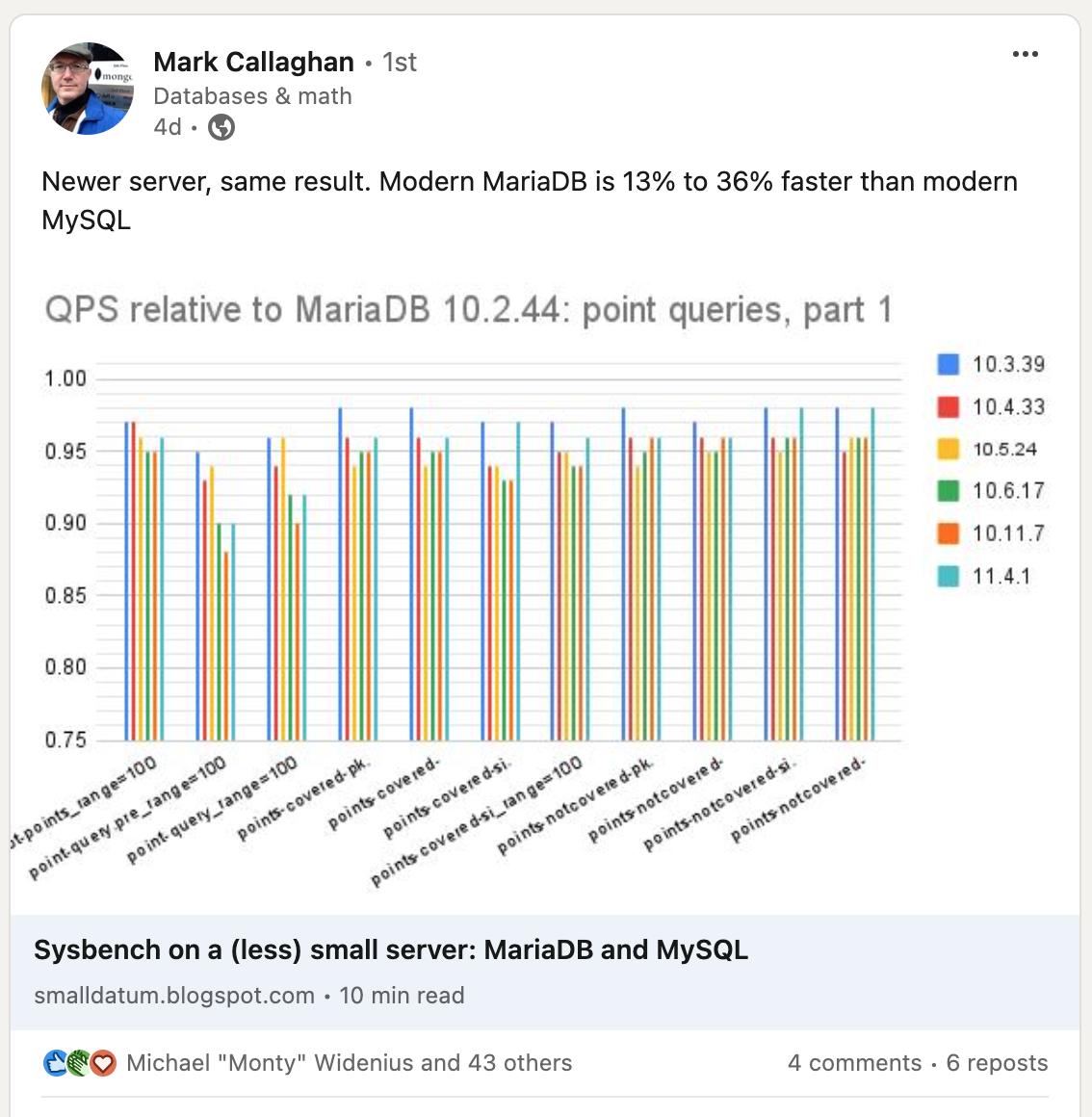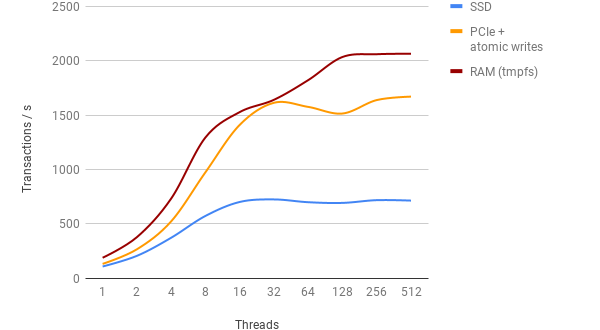Category Archives: Benchmarks
We are delighted to welcome Tempesta Technologies as a Silver Sponsor of the MariaDB Foundation!
Tempesta Technologies is the developer of Tempesta FW, an open-source hybrid of a web accelerator and a multi-layer firewall. Engineered for maximum efficiency, Tempesta FW is tightly integrated with the Linux TCP/IP stack and leverages cutting-edge technologies to deliver exceptional web application performance. It provides robust protection against DDoS and web attacks while ensuring smooth, high-speed operation under normal conditions.
This partnership underscores MariaDB Server’s continued commitment to performance and efficiency—not just in terms of database speed and scalability, but across the broader ecosystem that powers modern web infrastructure.
…
Continue reading “Tempesta Technologies Becomes Silver Sponsor of MariaDB Foundation”
There are many forums in the past couple of years where I have talked about how non-code contributions are just as important to MariaDB Server and us at the MariaDB Foundation as the code contributions I typically help with. I’ve also highlighted in the past how Intel have provided some fantastic non-code contributions. They assist us by detecting performance issues on their new and future platforms, as well guidance in finding the root cause of these issues.
The outcome: Over a million NOPM in HammerDB
Today I want to discuss some of the performance improvements that Intel has helped with, which have led to MariaDB Server achieving 1 million NOPM (new orders per minute) in the HammerDB TPROC-C test.
…
Continue reading “How Intel helps MariaDB become even faster”
Is performance important for you, along with the latest features and long-term support? Go with MariaDB 11.4. But don’t take our word for it. We asked well known benchmarking expert Mark Callaghan to check out a number of MariaDB and MySQL releases, hit them hard with a tool of his choice, and share his findings.
MariaDB’s performance is stable over the years
The outcome: On the low concurrency load (high concurrency results are being prepared), MariaDB maintained stable performance over the last 10 years and 14 releases, while MySQL performance dropped almost by a third.
…
Continue reading “How MariaDB and MySQL performance changed over releases”
We recently had a chance to test how the Shannon Direct-IO PCIe Flash G3i devices improves the performance of MariaDB. Anybody who cares about I/O performance has noticed that PCIe drives have become readily available in recent years and that they are significantly faster than normal SSD drives connected to the traditional SATA port (not to mention hard disk drives). In addition to being great hardware, the Shannon drives offer an extra boost by having a device driver that supports atomic writes. This means the device guarantees that a write made to it reaches the drive, and thus the MariaDB server does not have to run extra checks like it does on normal hardware.
…
Continue reading “Improved MariaDB performance using Shannon Systems PCIe and atomic writes”
Recently we had a report from a user who had seen a stunning 90% performance regression after upgrading his server to a Linux kernel with KPTI (kernel page-table isolation – a remedy for the Meltdown vulnerability). (more…) …
Continue reading “MyISAM and KPTI – Performance Implications From The Meltdown Fix”
t’s been almost a year since I benchmarked MariaDB and MySQL on our good old 4 CPU / 32 Cores / 64 Threads Sandy Bridge server. There seem to be a few interesting things happened since that time.
- MySQL 5.6.23 peak throughput dropped by ~8% compared to 5.6.14. Looks like this regression appeared in MySQL 5.6.21.
- 10.0.18 (git snapshot) peak threads increased by ~20% compared to 10.0.9 and reached parity with 5.6.23 (not with 5.6.20 though).
- 10.1.4 (git snapshot) and 5.7.5 are the champions (though 10.1.4 was usually 1-5% faster). Both have similar peaks @ 64 threads.
…
Continue reading “A few interesting findings on MariaDB and MySQL scalability, multi-table OLTP RO”



